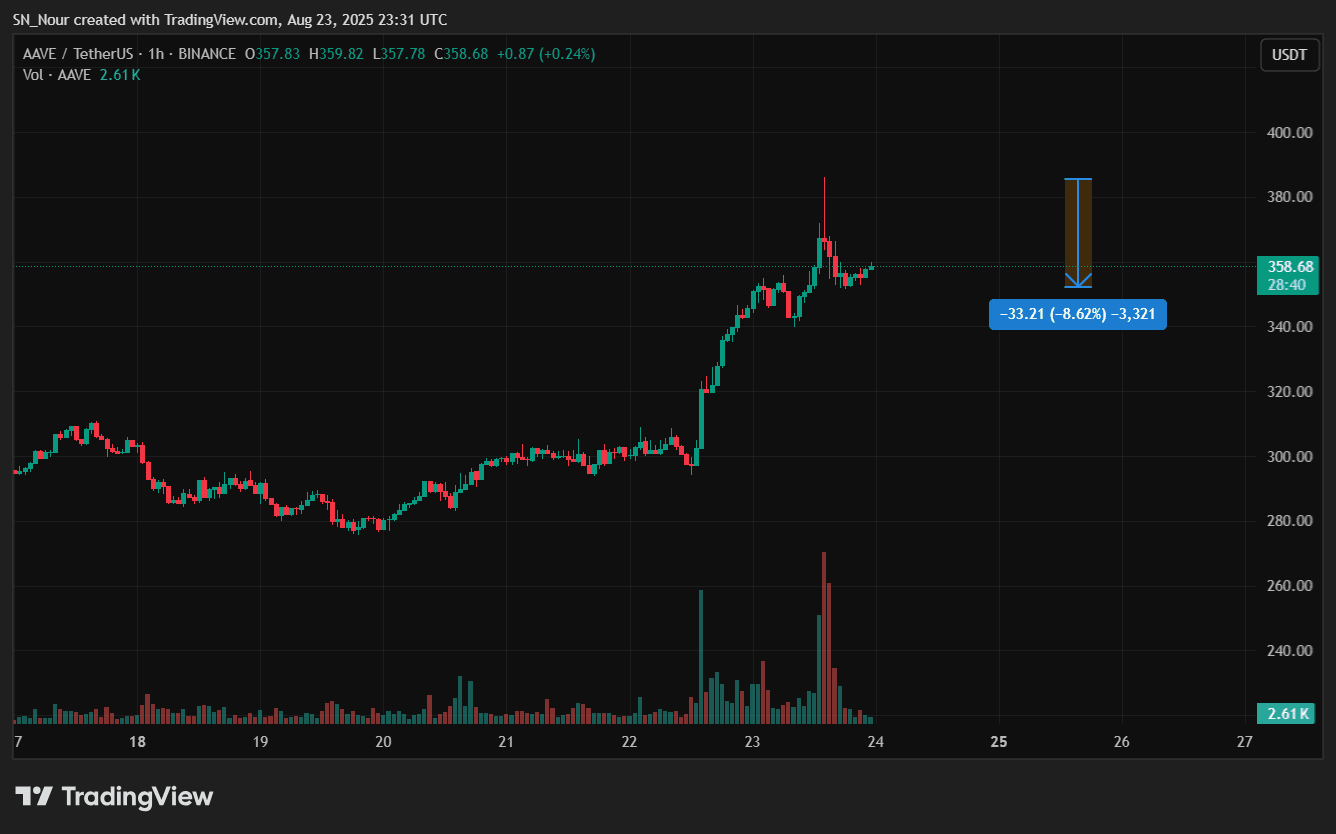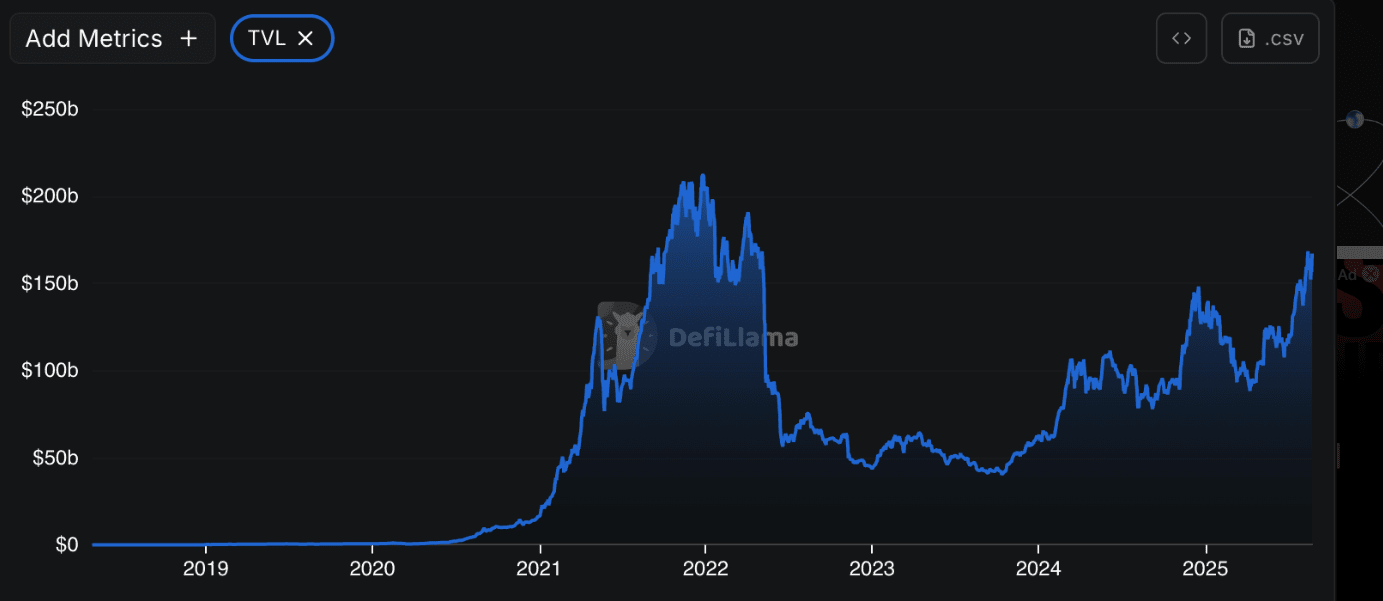The price of Aave token (AAVE) plummeted more than 8% on Sunday, following rumors that this decentralized finance (DeFi) protocol would not be allocated 7% of the total supply from World Liberty Financial (WLFI) – a DeFi platform backed by members of U.S. President Donald Trump's family.
"The WLFI team confirmed to WuBlockchain that the information 'Aave will receive 7% of the total supply of WLFI tokens' is completely false and just a rumor," blockchain journalist Colin Wu stated, revealing a wave of lively debate on social media regarding the authenticity of the rumors as well as the token allocation agreement.
According to Wu, a proposal made in the WLFI community in October 2024 specified that Aave's decentralized autonomous organization (DAO) – the governance unit of the protocol – would receive 7% of the circulating supply of the WLFI governance token along with 20% of the revenue from deploying WLFI on Aave v3.
Aave founder Stani Kulechov called this proposal the 'art of the deal' on Saturday and in another post, he implicitly asserted that the terms stated in the proposal were still in effect. Shortly after rumors spread, the price of AAVE quickly fell from around $385 to a low of $339, before recovering to around $358.

Bitcoin Magazine contacted representatives from both World Liberty Financial and Aave but has not yet received a response at the time of publishing.
Speculation about a deal between Aave and World Liberty has emerged in the context of a renewed wave of interest in the DeFi space, along with stronger participation from financial institutions.
DeFi thrives thanks to the participation of institutions
According to data from DeFiLlama, the total value locked (TVL) in DeFi protocols has surpassed $167 billion, nearing the record level of over $212 billion previously recorded in December 2021.
The strong increase in TVL occurred after the 2024 U.S. elections, as investors bet on a more open regulatory environment for cryptocurrency in the country.

Notably, large institutions – from banks, asset management companies to corporations and financial service enterprises – are increasingly expanding their presence in the digital currency and DeFi space, thereby shaping many significant stories in the current market cycle.
However, the wave of institutional participation has also sparked heated debates within the community: does government intervention dilute the decentralized, permissionless nature of DeFi, and even pave the way for the risk of this sector being 'captured' by traditional financial institutions?